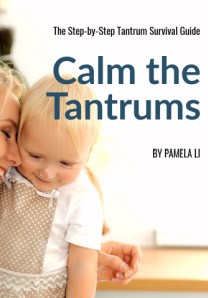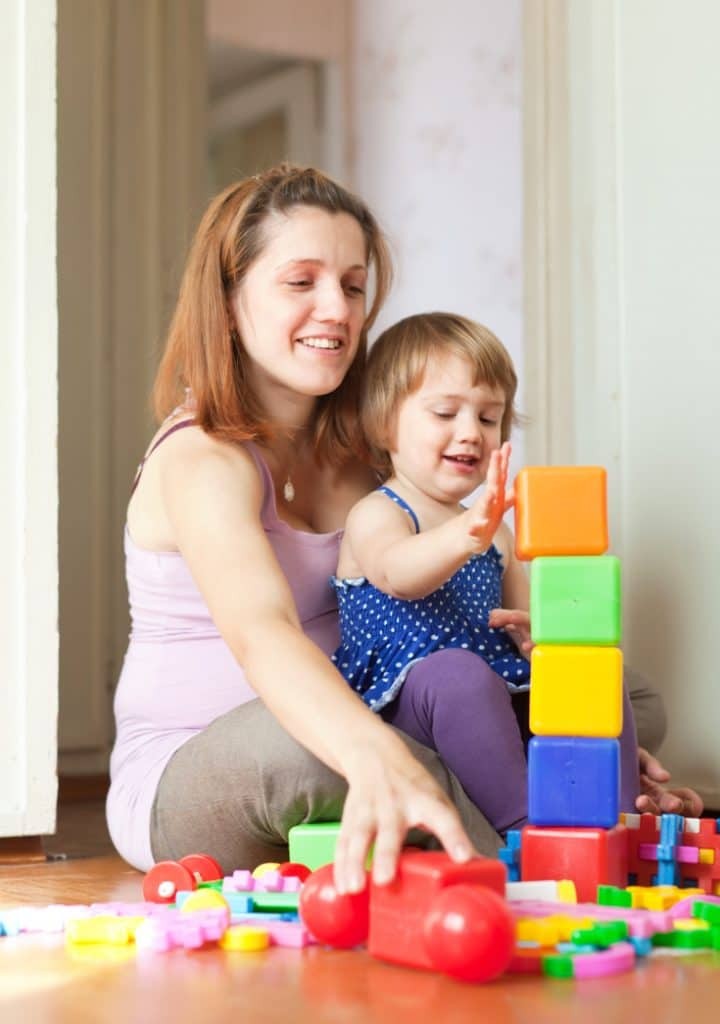How to Praise a Child With Words (29 Examples)
How to praise a child with words appropriately and effectively? Coming up with encouraging words for kids can be tricky.
Words of encouragement for kids, when used in the right way, can have a powerful positive impact on the kids’ lives. But if you’re not careful, there will be unexpected side effects.
Let’s look at the 7 proven types of encouraging words that can motivate kids without the negative side effects.
Table of Contents
- Benefits of Praising children
- How to Praise a Child with Words
- 29 Examples
Encouraging words for kids are commonly used by parents and teachers. When used right, these encouraging words can have powerful positive effects on kids. This is because positive reinforcement can condition young children to repeat the praised behavior.
Whether it is academic performance or sports achievements, “Well done”, “Good job” or “You’re so smart” are common encouraging words to tasks well done.
But using these encouraging words for kids doesn’t always inspire kids’ motivation.
In fact, using them indiscriminately can be counter-productive.

Benefits of Using Appropriate and Effective Encouraging Words For Kids
Here are three benefits of using the right words of encouragement for kids.
Improve children’s self-esteem
Studies have shown that positive phrases for kids with low self-esteem are particularly beneficial.
Increase intrinsic motivation
Positive words of Encouragement can increase students’ intrinsic motivation. Academic intrinsic motivation can affect a child’s desire to learn. As a result, students with higher intrinsic motivation tend to have better academic achievements.
Enhance perseverance
Parents’ encouragement for kids can enhance children’s engagement and perseverance.
How to Praise a Child With Words
If encouragements are so useful, does it mean that you should praise your son or daughter lavishly, and they will then be so motivated that you will never have to worry about them not working hard in school?
There are many ways to praise a child, but not all encouraging words are equal.
Words matter.
If used copiously, some types of encouragement can actually do more harm than good.
So how to encourage kids without negative effects?
The key lies in how and when children are praised.
Here are 7 tips on using encouraging words for kids constructively.
1. Praise Sincerely And Honestly

We sometimes praise our children purposely to boost their self-esteem, motivate them, encourage certain behavior, or protect them from hurtful feelings. However, if encouraging words are not perceived as sincere and honest, children won’t feel very encouraged.
Insincere praises are not only ineffective, but they can also be harmful.
Encouraging words that are inconsistent with self-view may be perceived as insincere. These encouraging words are discounted when children think about their own behavior that is contrary to the praise (“That’s not true. I actually wasn’t that good.”). Such encouragement can lead to children’s self-criticism and even intentional sabotage to resolve such discrepancies.
Effusive or overly general encouragement may also be perceived as insincere because the more general the praise, the less likely it is consistent with the existing facts. (“I’m not an angel. I didn’t do my homework last night.”)
Not praising children spontaneously or praising just to reinforce or manipulate behavior are perceived to be insincere as well.
Examples:
| Don’t | Do |
|---|---|
| You’re a genius for solving that problem! (“Genius? I only got one out of three questions!”) | You came up with an excellent answer for the last question. |
| What an angel you are! (“I’m an angel for sharing a cookie? What about not doing homework last night?”) | It’s generous of you to share your cookie. |
| You did very well. I’m sure you will do well again next time. (manipulate) | I love the solution you came up with. |
2. Be Specific And Descriptive

Instead of sweeping words of encouragement, praise children using descriptive and specific words. The less general or generic the encouragement, the more likely it is factually correct and perceived as sincere.
Pointing out a specific aspect of the child’s performance or describing what behavior led to excellent results is a good way to send positive messages.
Noticing small things signals you have paid attention and you really care. They are found to be more effective in promoting desired behavior.
Examples:
| Don’t | Do |
|---|---|
| What an awesome painting! | I like the way you are using different colors on this drawing. |
| Great job! | You came up with a thoughtful answer and really nailed that question! |
3. Praise Children’s Efforts And The Process, Not Their Achievement or Ability

One reason human is the smartest animal on Earth is that we want to learn and understand the cause and effect of matters. How we attribute to events affects how we think of and respond to future events.
When children are praised for their efforts in doing a task, they learn to attribute success to their efforts. Because effort is a quality that we all have the power to control and improve, these children will therefore focus more on putting in the effort to practice or develop skills than on pursuing results per se.
This type of mastery encouragement helps children adopt a growth mindset which allows children to believe in practicing and improving skills. Such a learning mindset can increase kids’ intrinsic motivation, persistence, and enjoyment.
When facing failure, these children believe that they have failed because they simply have not tried hard enough. The failure will be avoidable if they put in more hard work. So these kids are motivated to try again and they tend to improve in performance. They are more resilient and do not crumble when they fail.
On the other hand, children praised for abilities attribute success to their abilities rather than their own effort. Such encouraging words for kids do tend to negatively affect children in two different ways.
First, having good results linked to ability may influence children to change their goals for achievements to result-oriented. They assess their abilities through performance.
For example, praising a child smart for a good grade may cause them to want to continue to prove that they are intelligent through good performance. This may motivate children who have succeeded to do more and try harder.
On the surface, this type of encouragement can increase kids’ motivation.
However, researchers have found that these children are also more likely to sacrifice potentially valuable learning opportunities if these opportunities hold the risk of making mistakes and do not ensure outstanding performance. These children reject new learning to preserve their “smart”. Once these children encounter failure in the praised domain, they also quit faster.
Ability praise sent a subtle message that previous success was because of the praised traits. Failure then implies a lack of fixed ability. Children who carry this fixed mindset give up trying more easily when things become difficult. They suffer from achievement-based helplessness. Those who cannot recover to try again after experiencing failure lack the resilience needed to succeed in life.
So praising ability has an immediate benefit in motivation, but it also has a long-term cost in vulnerability when facing failure or difficult situations.
Ability-vs-effort is not the only determining element in the effectiveness of encouragement. Other factors include the age of the child (can they distinguish ability/effort?) and context of the encouragement (are they praised after another event that can have other implications?).
To avoid those potential pitfalls, parents can praise the process which is another type of encouragement related to effort. The process includes not only effort but also other qualities such as strategies, thoughtfulness, concentration, self-corrections.
Research shows that toddlers who receive more process praise perform better seven years later academically.
Examples:
| Don’t | Do |
|---|---|
| What a smart boy! | I can see that you worked really hard on putting the pieces together. |
| Your ability in puzzle solving is excellent. | Your strategy in solving this puzzle by separating the colors was excellent! |
| You are such a great puzzle-solver! | You are good at trying different ways to solve a hard puzzle. |
For more help on calming tantrums, check out this step-by-step guide

4. Avoid Controlling Or Conditional Praise

Controlling phrases are different from positive informational feedback used to affirm a child’s progress, improvement, or task mastery. They are given intending to manipulate or control.
A statement such as “Good! I know you can do better” is intended to motivate the child to try harder next time.
When encouragement is used as a controlling tool, they utter approval and positive evaluation, which is contingent upon good results or performance. These conditional encouragements instill a sense of contingent self-worth in kids.
Self-worth is a general positive/negative regard (or good/bad) that they feel they deserve from others. Kids as young as two years old or preschoolers develop a sense of self-worth.
When kids view that their feelings of self-worth are contingent on approval and positive judgment, they seek goals that are self-valuation-focused. These kids’ self-worth is then contingent on reaching the goals.
For example, if a child feels that his self-worth is affected by how well he plays football, then his goals will be to perform well in practice and matches to increase or maintain a strong sense of self.
To some parents, this may be what they want, or they think they want.
However, this child will also avoid activities that may cause negative judgment.
That means kids who feel their self-worth is contingent on approval will not want to try new things, fearing novelty means less expertise to achieve good outcomes. These kids are also less creative because innovation might disrupt the cultural norm, resulting in negative judgment. They are also less self-directing and prefer conformity.
Conditional praise also acts as extrinsic motivation and reduces kids’ intrinsic motivation. These children tend to have less healthy self-esteem.
It is also worth noting that the negative impact of controlling praises is bigger on girls than on boys.
Examples:
| Don’t | Do |
|---|---|
| I’m sure you will want to do better next time. | You’ve worked really hard on this every day and I like how you’ve drawn this picture using bright colors. |
| You did very well on that one, just as expected. | You did very well on that one. |
| If you keep it up every day, I believe you will do very well. | You did really well in collecting the data. |
5. Avoid Comparison Praise

It’s easy to fall into the habit of encouraging by comparison. After all, that’s how most of us were raised — we were compared in school, in sports, in extracurricular activities, in university entrance exams such as SAT or ACT, at work.
At times, those comparisons with someone else can motivate us to study or work harder.
The problem is, it can also backfire when we fail.
Think about how it feels when you compare yourself with a more successful peer. When we perform well in comparison, we are proud, excited, and motivated. But when we fail, it probably depresses rather than motivates us.
Similarly, comparison praising leaves children vulnerable to future setbacks. Kids who are praised by comparison don’t stop comparing when they fail. Instead, they lose motivation faster.
When these kids face difficulties, they show more negative emotion, frustration, anxiety, and helplessness than children who are mostly praised for their mastery of task. They become less resilient.
Like conditional praise, social-comparison encouragement teaches children that winning, not learning, is the goal. This winning-oriented attitude reduces intrinsic motivation affecting children’s desire to learn or to overcome failure.
To prevent failure, these kids avoid challenges or stop learning new things that require skills they don’t already have an advantage over others.
| Don’t | Do |
|---|---|
| You are so good, just like your sister. | You are good at playing this game. |
| You are the smartest in your class! | You solved the problem with such great focus. |
6. Avoid Easy-Task Praise Or Over-Praise

There are multiple negative impacts when adults praise simple tasks or overpraise anything.
Handing out encouraging words for tasks that are easy to complete, or not done well, is perceived as insincere. Doing so can also have two types of impact on a child’s self-esteem, both are not great things.
For kids who have low self-esteem, their parents may give inflated praise in an attempt to help raise it. Paradoxically, such praise can lower these children’s motivation and sense of self-worth in setbacks.
For kids who have high self-esteem, inflated praise does not lower self-esteem, but cultivates narcissism. Narcissistic children feel superior to others, believe they are entitled to privileges and want to be admired by others.
Overpraising also conditions kids to expect praises every time. It becomes an extrinsic reward that reduces, not increases, motivation. Frequent praising also leads children to believe the absence of praise signifies failure.
7. Be Spontaneous
Praise is a double-edged sword. To avoid overpraising or sounding insincere, the best way to use words of encouragement is to give them spontaneously when they’re not expected.
Compliment something unexpectedly and authentically.
Be spontaneous. For example, include an encouraging note for a child, provide affirmation or offer appreciation words for kids as a surprise. Appreciating children’s work can take many forms. You can also encourage your child physically, e.g. give them a big hug, high-five, or pat on the back to acknowledge their achievements.
Do not make it a habit to praise every positive action. You don’t have to praise every day to help kids feel motivated. Benefits of praising a child disappear when it is expected.
Need Help Motivating Kids?
If you are looking for additional tips and an actual step-by-step plan, this online course How To Motivate Kids is a great place to start.
It gives you the steps you need to identify motivation issues in your child and the strategy you can apply to help your child build self-motivation and become passionate about learning.
Once you know this science-based strategy, motivating your child becomes easy and stress-free.
29 Examples of Encouraging Words For Kids
The following is a list of encouraging words that can be used on the three most common occasions.
Encouraging and Inspirational Words
Congratulations! You worked really hard for this.
You proactively solved this problem and achieved success.
Be proud of yourself.
Your effort makes an enormous difference.
These are very creative ideas.
You’ve come up with a lovely solution.
Your unique solution nailed that question.
I can see that you’ve worked very hard putting them together.
You were so careful when you stacked the blocks and see how tall it is.
You had amazing focus when you were working on this project.
Words of Encouragement for Making Good Decisions
That’s a very generous thing to do.
That’s very thoughtful of you.
You’re being such a good friend.
You used such kind words.
Thank you for thinking of your sister.
You make a difference in this.
You gave very good advice to your friend.
I like your unique sense of style.
You have such a kind heart.
Your compassion for others is wonderful.
I like how you included your new friends in the game.
The ideas you came up with were very appropriate.
Words of Encouragement in Difficult Times
It’s about how much you’ve learned, not how much you’ve won.
You had fun doing it! Winning is not the goal.
You’ve learned so much and you will be able to use this knowledge to improve your skills.
I love you just the way you are.
Not giving up and keeping practicing every day are your best traits.
Winning or losing doesn’t define who you are. You do.
The reason for going to school is to learn, not just to do well in tests.
You have so much room to grow as long as you don’t give up.
Believe in yourself.
Previous:How To Choose A Preschool – The Complete Guide & Checklist
Next:Positive Parenting – The Definitive Guide And 9 Essential Tips
-
Air travel is appropriate for most infants. Before you fly with your baby, however, consider: Your babys age. Your babys doctor might discourage unnecessary air travel shortly after birth. Newborns have developing immune systems and air travel m
-
Your kids are cooped up inside while the rain pours down outside. If you dont keep them occupied, theyll end up bored or restless -- or worse. Keep the blahs at bay by trying out a new art project or game. You might even want to put together a small
-
01 of 08 Is now the right time? If you know you want children, Alan M. Singer, Ph.D., family therapist and author of Creating Your Perfect Family Size, suggests the most important decision for couples to make is whether it'


